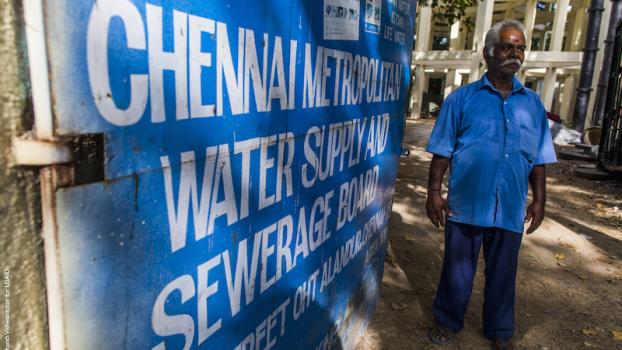Podcast Features Two Thought Leaders on How Tackle the Global Sanitation Crisis
“I have seen that real change comes from the bottom up, from pressure from society—from good, willing people and action groups who actually put pressure on their governments to change,” says Rolf Luyendijk, executive director of the Water Supply & Sanitation Collaborative Council, in the latest episode of USAID’s Global Waters Radio podcast series. “Linking up with these groups, I think, is critical to get politicians to prioritize investing in sanitation.”
To mark World Toilet Day, Luyendijk and Portia Persley, deputy director of the USAID Water Office, joined Global Waters Radio to talk about the challenges and opportunities inherent in tackling the global sanitation crisis, one of the world’s most pressing public health challenges. With more people having access to a cell phone than to a flush toilet and nearly 900 million people worldwide still practicing open defecation, what is the path forward for achieving universal access to basic sanitation, and what are the likely financial commitments needed to make it happen?
The two water and sanitation thought leaders provide listeners with a blueprint outlining the types of programming and data collection needed to get ahead of the sanitation crisis and lay the foundation for a healthier future. They also emphasize the strategic importance of strengthened governance and financing in the global campaign to increase access to improved sanitation services and facilities.
Describing the Agency’s efforts to make utilities more self-sufficient, Persley says USAID “has quite a strong WASH financing technical assistance mechanism through which we've been engaging both water and sanitation companies that are in need of increasing access to finance.” She adds the Agency wants to “help strengthen [utilities’] ability to get to that private capital [by] working with them to increase their creditworthiness [and] working with them to increase their operational effectiveness, so that they present a reduced risk profile and can more gainfully engage with potential investors.”
Listen to the full podcast:
By Russell Sticklor, USAID/E3 Bureau Water Office’s Water CKM Project
To view or download this interview transcript:


